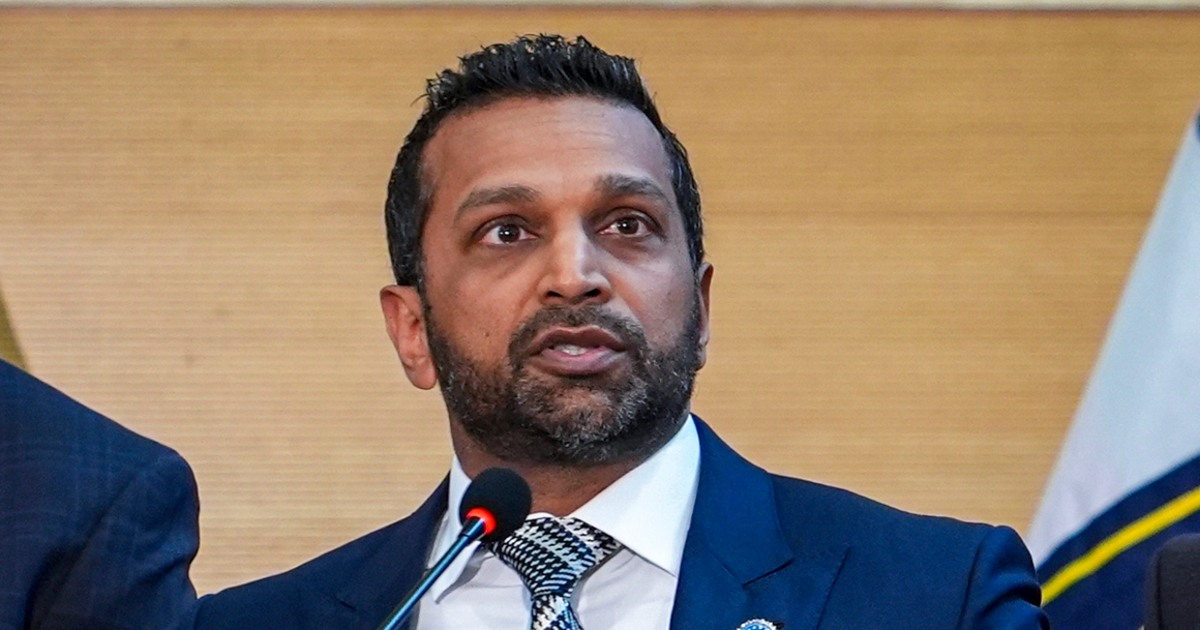The Impact of Online Speech on Employment

Introduction
In today's digital age, the words we say online can have serious consequences on our employment. This has become increasingly evident as several workers have been fired or placed on leave for their public comments about conservative commentator, Charlie Kirk. This trend has been seen across various industries and organizations, leaving employees with little recourse for their actions.
Key Details
Recently, a man working at a clothing store was let go after posting derogatory comments about Kirk on social media. This sparked a larger conversation about the impact of online speech on one's job security. Many companies have a zero-tolerance policy for employees making controversial or offensive statements, leading to swift consequences. This has also been seen in the political realm, with government officials being reprimanded for their public remarks about Kirk. It is clear that companies and organizations are taking a stand against any negative comments towards Kirk, regardless of personal opinions.
Impact
With the rise of cancel culture and the power of social media, it is more important than ever to think before speaking, especially online. The repercussions of making controversial comments can now extend beyond just social consequences, but also to job loss. This trend also raises questions about free speech and the right to express one's opinions. Companies and organizations have the right to protect their image, but where do we draw the line on limiting personal expression? It is
About the People Mentioned
Charlie Kirk
Charlie Kirk is a prominent American conservative activist and the founder of Turning Point USA, a national student movement dedicated to promoting free markets and limited government. Born in 1993, Kirk co-founded Turning Point USA in 2012 at the age of 18, alongside Bill Montgomery. The organization has grown significantly, with a presence on over 3,000 high school and college campuses across the U.S. and more than 650,000 lifetime student members[2][3]. Kirk has been a prolific media presence, appearing thousands of times on various platforms, including Fox News and The Washington Post. He was named to the Forbes "30 under 30" list and became the youngest speaker at the 2016 Republican National Convention. He also served as the opening speaker at the 2020 RNC[2]. In addition to his activism, Kirk is an author, having written several books, including "The MAGA Doctrine," which became a best-seller on Amazon and The New York Times. His most recent book, "Rightwing Revolution," was released in 2024[2]. Kirk's involvement in politics extends beyond Turning Point USA. He was active in Bruce Rauner's successful 2014 gubernatorial campaign in Illinois. Rauner, who later became a financial supporter of Turning Point USA, praised Kirk's activism[3]. Kirk's activities have been controversial, drawing both support and criticism. Recently, Kirk's life was tragically cut short, and the FBI is investigating his death, offering a reward for information leading to the arrest of those responsible[3]. Despite the controversy surrounding his views and actions, Kirk remains a significant figure in conservative American politics.
About the Organizations Mentioned
Kirk
Kirk is a name associated with multiple organizations in business and technology sectors, but the most prominent and relevant entity in this context is Kirk Technologies, a company established in 1996 that specializes in manufacturing systems for the pharmaceutical, biopharmaceutical, and clinical supplies packaging industries[4]. Kirk Technologies has focused on providing innovative packaging solutions critical to the pharmaceutical industry's supply chain, ensuring safety, compliance, and efficiency. Another significant reference to "Kirk" is tied to Randal J. Kirk, an American billionaire investor known for his involvement in biotechnology and pharmaceuticals[3]. Kirk became chairman and CEO of Intrexon in 2008, a biotechnology company he helped take public in 2013, growing its market capitalization to $2.5 billion. Under his leadership, Intrexon (later renamed Precigen) concentrated on advanced gene-editing technologies, including human gene editing and genetically modified organisms like disease-resistant mosquitoes and genetically engineered salmon. Kirk’s ventures have also contributed to cancer treatments, gasoline alternatives, and agricultural biotechnology, marking him as a key figure in biotech innovation. His work has been recognized by industry leaders and he has spoken at major biotech conferences[3]. Additionally, there are smaller organizations named Kirk, such as Kirk Communications, which provides digital marketing services including website design, search engine optimization (SEO), and paid social media advertising to help businesses grow their online presence[2]. This firm emphasizes modern digital marketing strategies tailored to client needs, combining creativity with technical expertise. Some smaller Kirk entities, like Kirk Technologies Ltd. in the UK, were recently incorporated but dissolved shortly after, indicating limited activity or business continuity in those cases[5]. Overall, Kirk as a brand or name spans diverse sectors from biotech leadership and pharmaceutical manufacturing systems to digital marketing services, with the most notable impact stemming from Randal J. Kirk’s transformative role in biotechnology and pharmaceuticals[3][4][2].
Social_Media
## Overview “Social_Media” is not a specific company but a broad term referring to the ecosystem of digital platforms and technologies that enable users to create, share, and interact with content in virtual communities and networks[3]. This ecosystem includes globally recognized platforms such as Facebook, Instagram, X (formerly Twitter), LinkedIn, TikTok, and YouTube, each serving distinct purposes—from networking and microblogging to media sharing and live streaming[3]. Social media has become a foundational element of modern communication, influencing how individuals, businesses, and organizations connect, market, and engage with audiences worldwide. ## What Social Media Does Social media platforms facilitate real-time communication, content sharing, and community building. They empower users to publish text, images, videos, and live streams, while algorithms and features like hashtags and trending topics amplify reach and engagement[3]. For businesses, social media is a critical channel for brand awareness, customer engagement, targeted advertising, and reputation management[1][5]. Organizations often establish dedicated teams—comprising social media managers, content creators, community managers, and analysts—to strategize, create, schedule, and analyze content that aligns with business objectives[1][5]. These teams also monitor trends, respond to customer inquiries, and leverage data insights to refine marketing strategies[1][5]. ## History and Evolution The concept of social media dates to the early 2000s with the rise of platforms like MySpace and Facebook, which revolutionized online interaction by prioritizing user-generated content and network connections[3]. Over the past two decades, the landscape has diversified to include microblogging (X), professional networking (LinkedIn), short-form video (TikTok), and decentralized platforms (Mastodon, Bluesky)[3]. The industry has continuously evolved, with recent trends emphasizing the creator economy, private messaging, and the integration of artificial intelligence to personalize user experiences[5]. ## Key Achievements Social media has democratized information sharing, enabling grassroots movements
















